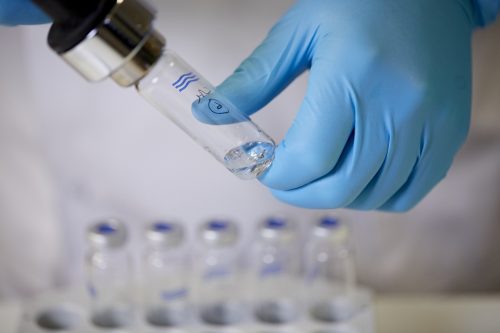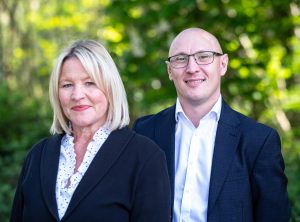Coronavirus business update: Latest news across the North West

Blackpool has launched COVID-19 testing in a move similar to that in Liverpool which helped the city region move out of Tier Three and back into Tier Two.
And Salford City Council has confirmed it is now one of 93 areas which have signed up to roll out locally led testing using lateral flow technology.
Blackpool council said a pilot of lateral flow testing is taking place at Park Community Academy, part of the Sea View Trust, and at emergency housing managed by Blackpool Coastal Housing, as part of the Government’s UK-wide continuing drive to increase the availability of testing.
The council, with provider partner Fylde Coast Medical services, is carrying out voluntary lateral flow testing on eligible adults. These tests are not open to the general public and cannot be booked.
Lateral flow antigen tests are a new kind of technology that could be used to test a higher proportion of asymptomatic people, better enabling authorities to identify and isolate more people who are at high likelihood of spreading the virus, and break the chain of transmission.
The council said it is working with the Department of Health and Social Care to identify how to best utilise this new technology at scale through a series of different field tests and pilots.
Dr Arif Rajpura, director of public health at Blackpool Council said: “We are keen to roll out these pilots in Blackpool for Lateral Flow testing and are really grateful to our partners who have come forward to take part.
“No-one is more keen to see our town, our economy and our communities go back to a normal a life as possible. Being involved in Lateral Flow testing is one way we can head towards doing this.
“I would urge any other organisations who are interested in taking part in a testing trial with us to please get in touch.”
Headteacher at Park Community Academy, Keith Berry, said: “We are pleased to be able to be involved in this trial. We have 110 staff at Park School and testing will take place of staff on a voluntary basis.
“Many of our children are vulnerable and feel that by taking a proactive approach can try to protect them and our school community as much as we possibly can.”
Dionne Nicholson, resettlement services manager at Blackpool Coastal Housing, said: “We are pleased to be taking part in this trial – we have developed safe systems for our services over the last seven months, but this pilot will help make our accommodation a safer place to live and work.”
Meanwhile, Salford City Council has confirmed that the small-scale trial of direct LAMP saliva testing has ended and that it is now one of 93 areas which have signed up to roll out locally led testing using lateral flow technology.
Since September the cases of COVID-19 increased rapidly within Salford and across the region as well as nationwide, meaning that Salford City Council has focused resources on managing outbreaks and containment of the virus.
City Mayor, Paul Dennett, said “The aim of our trial in Salford was to see if – and how – saliva tests could practically work for mass COVID-19 testing in the community. They were well received as an easy non-invasive test.
“Unfortunately, timing wasn’t with us for extending this pilot as testing technologies and rates of COVID-19 continued to move after the original discussions with the Department for Health and Social Care. We are now working to bring lateral flow testing to the city and city-region in order to provide testing in our communities.
“We remain committed to increasing COVID-19 testing in the city to contain the virus so we can resume the activities our communities hold dear. As part of this commitment we hope that Greater Manchester, as a whole, will be rolling out lateral flow testing to the public in line with the findings and learning from Liverpool’s recent experiences.”
::

Andy Burnham
The Growth Company has partnered with Citizens Advice Manchester and a network of experienced legal firms to ensure that Greater Manchester’s workers who have been hit hardest by the pandemic can access free legal advice.
During this period of uncertainty, many people across Greater Manchester are worried about their employment, from their employment rights, redundancy, pay cuts, to terms or disputes.
Employment Legal Advice is a new service to help individuals across Greater Manchester to access free employment-related legal support. The service is designed to help individuals access the right advice at the right time as quickly as possible.
The service is completely free, with legal experts giving something back and donating their time on a Pro Bono basis. The following law firms are taking part: Aaron and Partners; Davis Blank Furniss; Glaisyers; Hattons Solicitors; JMR Solicitors; Linder Myers; Monarch; Peach Law; Stephensons; Wrigley Claydon.
Enquiries to the service will be passed on to a dedicated triage advisor who will review the case and decide on the correct pathway for the user, including whether to refer them to an expert from the network of legal partners.
Andy Burnham, Mayor of Greater Manchester, said: “One thing that the pandemic has taught us is that Greater Manchester is stronger when we all pull together. It’s absolutely vital that workers across our city region are aware of their employment rights in these uncertain times, so I fully endorse this free service and would encourage people to use it.”
In April the Growth Company partnered with the Greater Manchester Combined Authority to launch Employ GM to help individuals and employers who have been impacted by the COVID-19 pandemic. The service supports individuals who have lost their jobs, while also promoting vacancies for local employers.
::

Frances O’Grady
The TUC has today warned that food processing factories could become ‘super spreaders’ of COVID-19 in the run up to Christmas.
People working in food plants already face a higher chance of contracting COVID-19 due to the lack of airflow, lack of social distancing and low temperatures, says the TUC.
With the number of temporary workers in food manufacturing set to increase by more than 40% this Christmas, the union body says the risk of workplace infections will grow.
Since March, several UK food factories have been forced to close during the pandemic after reporting hundreds of cases of coronavirus, among them suppliers to major supermarkets. Last month, turkey meat manufacturer Bernard Matthews reported 147 positive cases across two sites.
TUC polling published in September revealed that just two-fifths (38%) of workers say they know their employers have carried out COVID-secure risk assessments. And only four in ten (42%) reported being given adequate PPE.
TUC General Secretary Frances O’Grady said: “There is a real danger that food factories could become ‘super spreaders’ of COVID-19 as they produce turkeys and other seasonal fare for Christmas.
“Out-of-date guidelines on food production, combined with the seasonal increase in staff, will put factory workers at an even higher risk of infection.
“Ministers urgently need to update the guidance for food production. They must require employers to publish their risk assessments. And they must resource the HSE properly, so it can get into food factories and crack down on unsafe working.
“That’s how to make sure everyone is safe at work this Christmas.”








